UNHRC passes motion on religious hatred after desecration of Holy Qur'an in Sweden
The United Nations Human Rights Council (UNHRC) has approved a resolution on religious hatred and bigotry in the wake of the desecration of the Holy Qur'an in Sweden that led to widespread outrage and protests across the Muslim world.
The resolution, introduced by Pakistan on behalf of the 57-nation Organization of Islamic Cooperation (OIC) and opposed by the United States and the European Union, passed on Wednesday.
The motion calls for the UN rights chief to publish a report on religious hatred and for states to review their laws and plug gaps that may "impede the prevention and prosecution of acts and advocacy of religious hatred."
The motion called on countries to “impede the prevention and prosecution of acts and advocacy of religious hatred."
It was strongly opposed by the United States and the EU countries, which often throw their weight behind incidents of insulting Islam and desecrating its symbols.
The OIC member states, concerned by the incident last month outside Stockholm’s main mosque, secured an urgent debate at the UN’s top rights body on Tuesday.
Iran slams West's 'double standards'
Speaking on Tuesday at the 53rd session of the UN Human Rights Council, Iranian Foreign Minister Hossein Amir-Abdollahian said any kind of delay in condemning and preventing the desecration of the Holy Qur’an bespeaks of “double standards” by the Western countries.
Amir-Abdollahian said the latest desecration of the Qur’an in Sweden was the sixth incident of its kind in European countries in 2023 and described it as “an act that brazenly incites violence, hatred, discrimination and hostility against Muslims.”
The top Iranian diplomat underlined the need for identifying and eliminating the “legal loopholes” both at the national and international levels so as to prevent the recurrence of the insult to the Holy Qur’an as soon as possible.
Pakistan’s Foreign Minister Bilawal Bhutto Zardari told the Geneva-based council via video on Tuesday that the incident was an incitement to hatred.
“We must see this clearly for what it is: incitement to religious hatred, discrimination and attempts to provoke violence,” the top Pakistani diplomat said.
He said such acts occurred under “government sanction and with the sense of impunity."
“Stop abusing freedom of expression,” said Indonesia’s Foreign Minister Retno Marsudi. “Silence means complicity.”
On June 28, Salwan Momika, a 37-year-old Iraqi immigrant stomped on the Qur'an before setting several pages alight in front of Stockholm's largest mosque. The insult to the Muslim holy book was made under the authorization and protection of the Swedish police.
The incident, coinciding with the start of the Muslim Eid al-Adha and the end of the annual pilgrimage to Mecca in Saudi Arabia, drew the anger of Muslims from across the world.
Following the incident, several thousand Iraqis gathered near the Swedish embassy in Baghdad in protest against the Qur’an burning and demanded the expulsion of the ambassador.
People in other Muslim countries also took to the streets in protest against the move.
The perpetrator of the sacrilegious move told a Swedish newspaper later that he intended to repeat his protest in July.
Sweden has repeatedly permitted Qur'an burnings in recent years. In January, a Swedish-Danish right-wing extremist burned a copy of the Qur'an near the Turkish embassy in Stockholm.
VIDEO | Yemen; a bone in Israeli neck
D-8’s role in Iran’s economy after Cairo summit
China slams US as ‘war-addicted’ threat to global security
China ‘firmly opposes’ US military aid to Taiwan
VIDEO | Press TV's News Headlines
President Yoon Suk Yeol to be removed from office
At least 19 Gazans killed by Israeli airstrikes since dawn: Medics
Leader: Iran neither has nor needs proxy forces


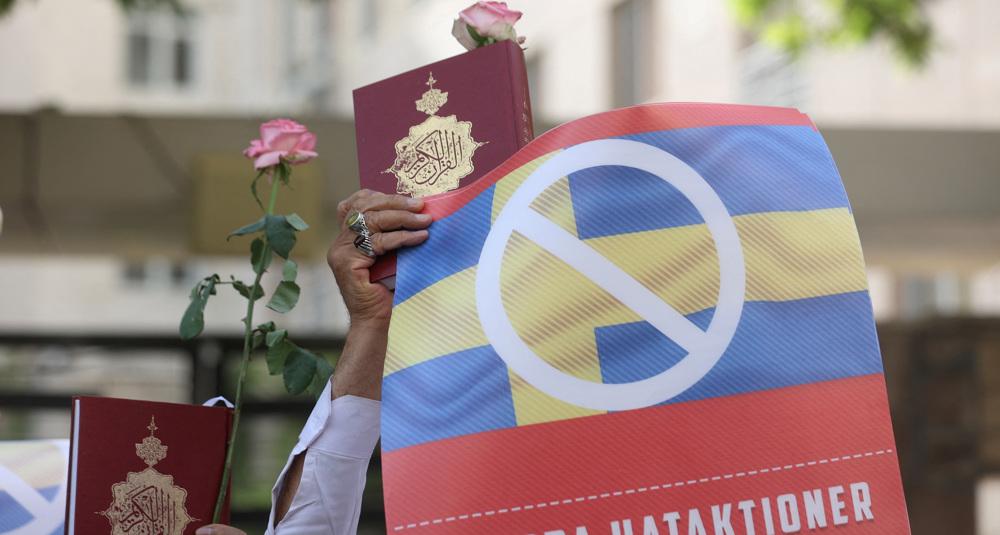



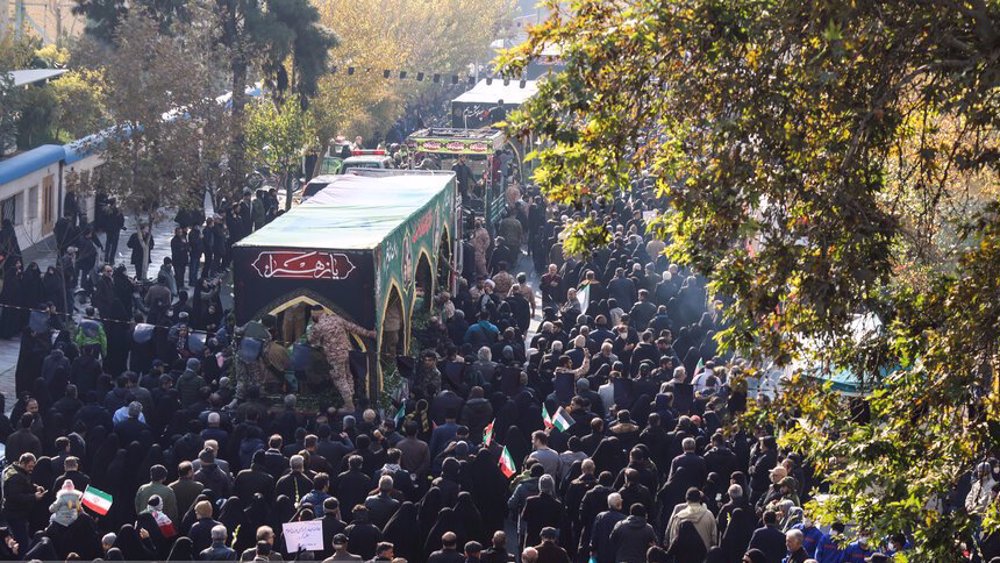




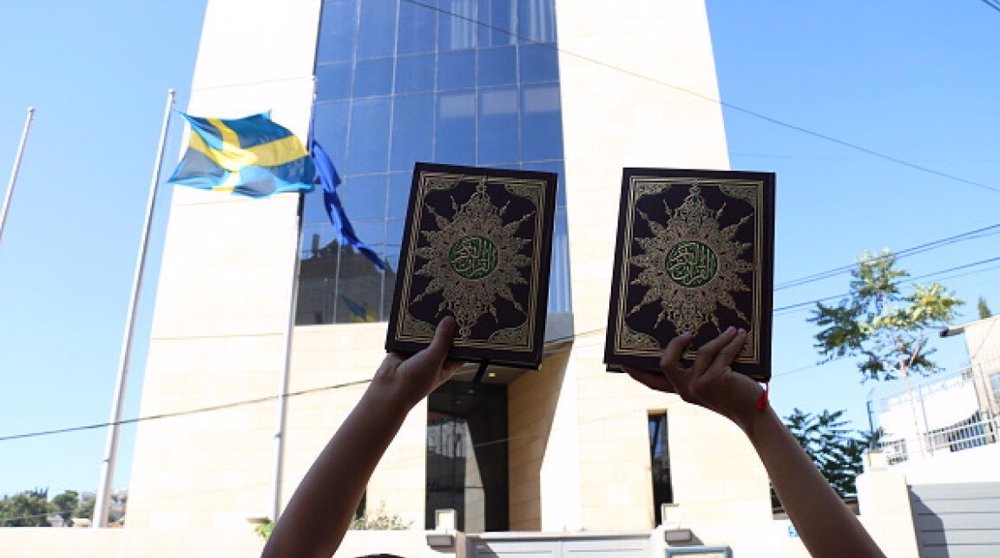
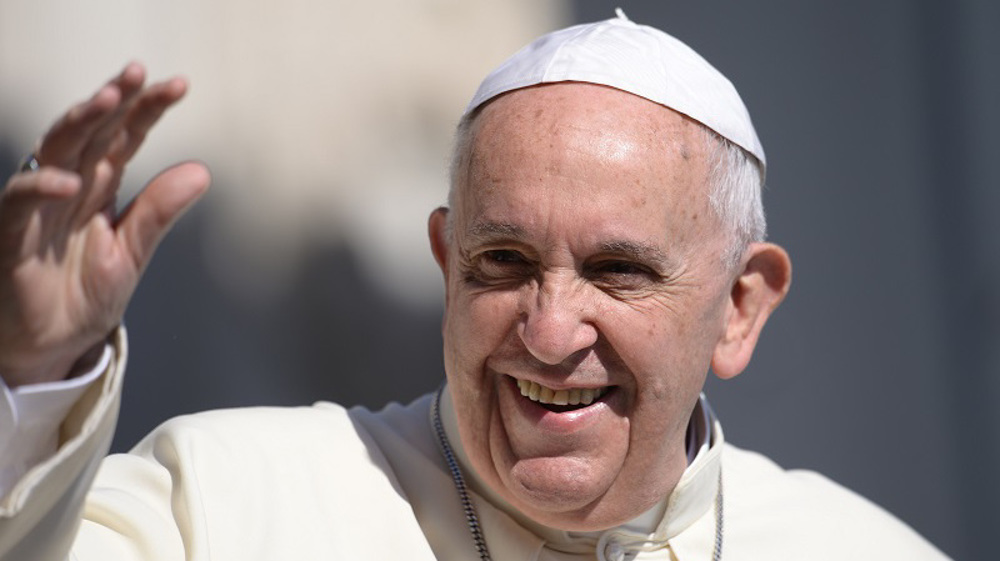
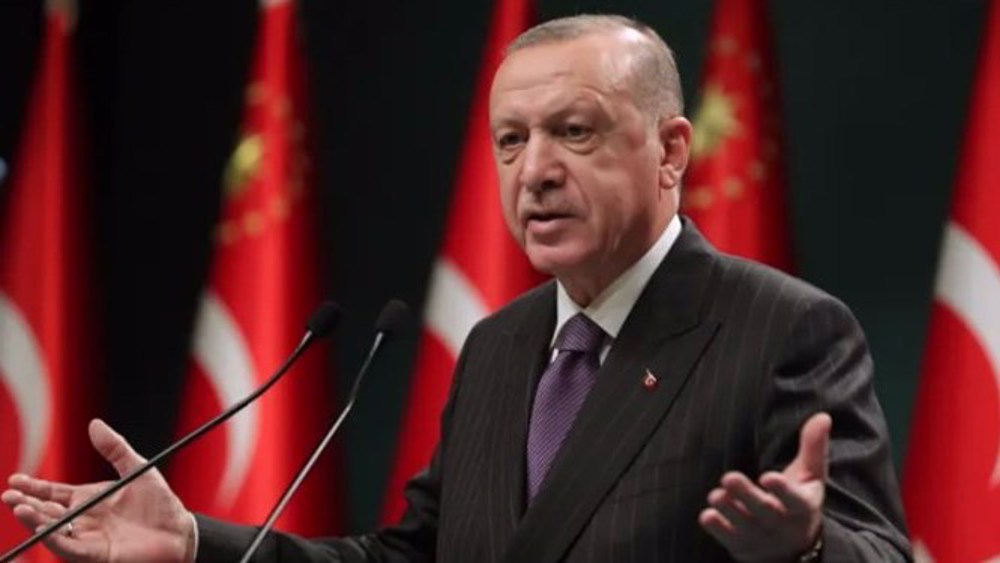


 This makes it easy to access the Press TV website
This makes it easy to access the Press TV website